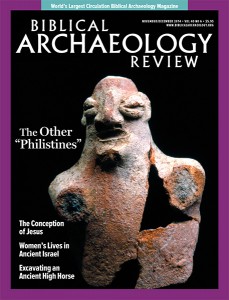
Hebrew University professor Moshe Greenberg, who died in 2010, was one of the foremost Biblical scholars of the 20th century. His work on Exodus influenced and informed the general public and the scholarly community alike. A second edition of his book Understanding Exodus: A Holistic Commentary on Exodus 1–11—edited and with a foreword by Jeffrey H. Tigay, professor emeritus of Hebrew and Semitic Languages and Literatures at the University of Pennsylvania—was published in 2013. The following quotation is from an excursus by Greenberg titled “Exodus in History: Preliminary Considerations.”
The gross features of the Exodus story—the sojourn in Egypt of Israelite tribes, their bondage and escape under an inspired leader—are too unflattering to have been late inventions, and have enough (though meager) contacts with extrabiblical evidence to be creditable. But in the rich detail of the narrative, what emerges is not history but Israel’s celebration of its history as the saving acts of God. The vivid impact of events has been transmitted through artful narration, in which hyperbole, dramatic structure, and modernization served to convey to generation after generation the wonder of those who participated in the events. The reality that the tale intends to convey is not past historical but present affective: the experience of events as they were taken in first by eyewitnesses, then through the consciousness of the generations who perennially relived and reflected on them as the basis of their own living faith.
Already a library member? Log in here.
Institution user? Log in with your IP address.

